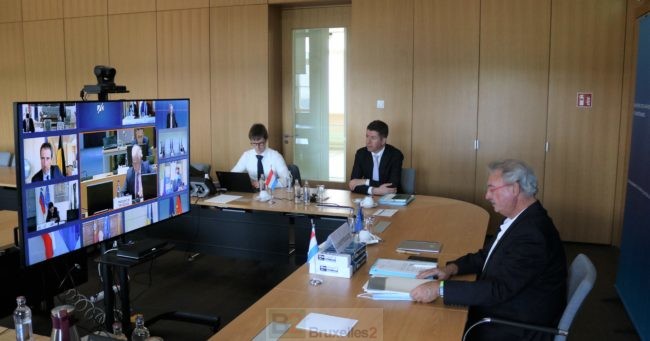The annexation of part of the West Bank by Israel is illegal. Like that of the Crimea (Jean Asselborn)
(B2) For the Luxembourg Foreign Minister, Jean Asselborn, interviewed by B2, there is, despite appearances, a strong consensus among Europeans to say clearly 'No' to the annexation of part of the West Bank by Israel

Several Israeli officials have announced the intention to go further in the West Bank, and to annex certain territories. A dangerous step in your opinion?
— This is a flagrant violation of international law. This will deal a fatal blow to the two-state solution. This would undoubtedly lead to a serious deterioration of the security situation on the ground. And, beyond the negative effects on relations between the European Union and its Member States and Israel, such an annexation is likely to have wider security implications, throughout the region.
During the meeting of foreign ministers on Friday, however, you failed to reach a common position?
— To say that we have no common position is not correct. There were a large number — what am I saying — a very large number of countries, which were on the same line. And only a few, very few, who couldn't agree with that position. Always the same States, not more than two or three (1), are opposed to this broad consensus which exists between us.
What kind of consensus is this?
— This position has four essential points, in my view. First, we want to cooperate positively with the new Israeli government. Israel is a partner that matters to Europeans. Second, a large number of countries believe that the annexation of the Jordan Valley is a violation of international law. Thirdly, we want to cooperate with Arab countries, with all Arab countries, as well as with the Americans. Fourth, we support a two-state solution. It's the only viable one. With this declaration, we want to act preventively.
How do you define this preventive framework?
— In our position, there is nothing offensive [vis-à-vis Israel]. We say [to the government in Tel Aviv] if you do this, you contradict international law. For me, it's a bit like the situation in Crimea. The annexation of part of the West Bank by Israel is similar to that of Crimea by Russia. This is against international law. You don't have to split hairs. Moreover, the American Secretary of State, Mike Pompeo, himself, when he was in Jerusalem, did not give the green light to this annexation.
Are there no penalties?
— We did not talk about sanctions. It is a reminder of international law. The objective is to try to arrive at a consensual text.
And you didn't mention the possible recognition of a Palestinian state?
- Neither.
A short word to conclude, how do you manage to work at 27 during these meetings by videoconference?
- It's difficult. We have three minutes each in a videoconference. We are more on a tour de table. This does not allow for real discussion. And this is likely to continue. I am not sure that we will be able to have new meetings, in a physical way, before September.
(Comments collected by Nicolas Gros-Verheyde)
Interview conducted in French, by telephone, Friday (May 15) evening
(1) According to information from B2, Hungary and Austria above all expressed their opposition.



